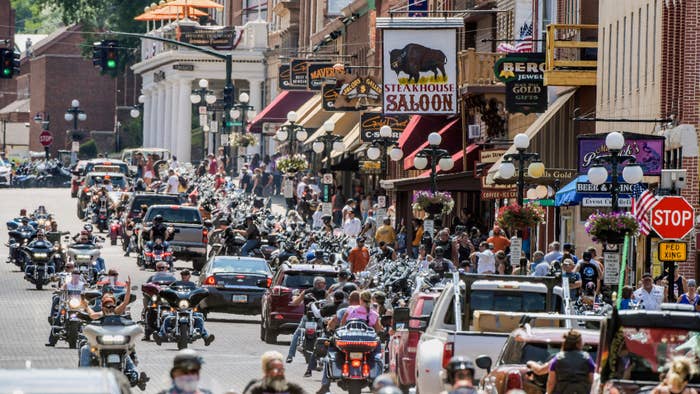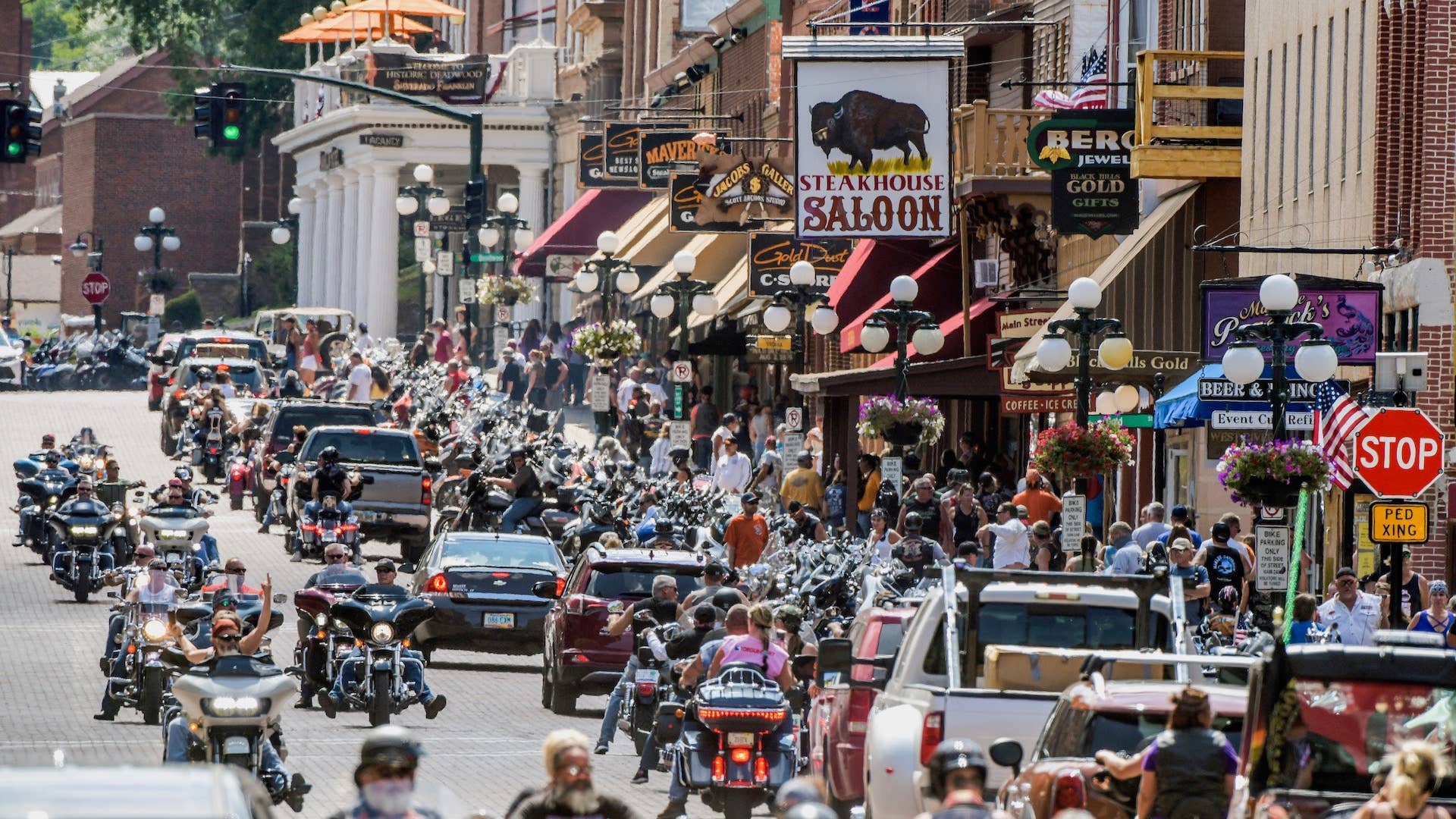
Researchers described this year's Sturgis Motorcycle Rally as a coronavirus "superspreading event" that came with a hefty monetary price.
According to a new report by the IZA Institute of Labor Economics, the 80th annual rally is suspected to have caused over 250,000 COVID-19 cases, which could collectively cost public health agencies about $12.2 billion. The rally took place between Aug. 7-16 in Sturgis, South Dakota, where around 460,000 motorcycle enthusiasts gathered for outdoor celebrations. It was previously reported that the majority of attendees did not adhere to coronavirus safety protocols, including wearing face masks and maintaining at least six feet of physical distance.
Economists have since used cell phone data to track the activity of non-residents during the multi-day event. They also referenced local health records and data from the Centers for Disease Control and Prevention to estimate that the rally resulted in 266,796 new COVID-19 infections, "or 19 percent of 1.4 million new cases of COVID-19 in the United States between August 2nd 2020 and September 2nd 2020."
Per the report:
The Sturgis Motorcycle Rally represents a situation where many of the 'worst case scenarios' for superspreading occurred simultaneously: the event was prolonged, included individuals packed closely together, involved a large out-of-town population (a population that was orders of magnitude larger than the local population), and had low compliance with recommended infection countermeasures such as the use of masks. The only large factors working to prevent the spread of infection was the outdoor venue, and low population density in the state of South Dakota.
Economists also estimate that these cases—assuming none are fatal—may lead to $12.2 billion in public health costs. They point to the statistical cost—about $46,000—of each positive COVID-19 case, and determined it would've been cheaper to pay each Sturgis attendee $26,000 to forgo this year's event.
"This is enough to have paid each of the estimated 462,182 rally attendees $26,553.64 not to attend," the report read. "This is by no means an accurate accounting of the true externality cost of the event, as it counts those who attended and were infected as part of the externality when their costs are likely internalized. However, this calculation is nonetheless useful as it provides a ballpark estimate as to how large of an externality a single superspreading event can impose, and a sense of how valuable restrictions on mass gatherings can be in this context."
Last week, Minnesota health officials confirmed a 60-year-old man had died from coronavirus after attending the Sturgis rally. Wisconsin has reported more than 20 new infections among residents who attended the event; however, officials have yet to determine if those individuals contracted the disease during their time in South Dakota.
"We can't say that Sturgis was or was not the cause of these cases," Elizabeth Goodsitt, a spokeswoman for the Wisconsin Department of Health Services, told ABC News.

